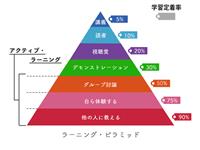Macroeconomic And Industry Analysis
Ding zhaoyong
The Global Economy
The national economic envirement
The global political environment and risk
The political and economic issues
Exchange rates between host country and
other countries affect the international
competitiveness of its industries.
The Domestic Macroeconomy
Gross domestic product(GDP) and industrial
production
Unemployment rate and capacity utilization rate
Inflation
Interest rate
Budget deficit--crowding out private
borrowing/investing
Sentiment----influence consumption,investment and
AD.
Demand and Supply Shocks
Demand shock
– Is an event that affects the demand for goods and
services.
– Demand shocks are usually characterized by aggregate
output moving in the same direction as interest rates
and inflation.
Supply shock
– Is an event that influences production capacity and
costs.
– Supply shocks are usually characterized by aggregate
output moving in the opposite direction as inflation and
interest rates.
Government Policy
Demand-side policy
– Focus on part of fiscal policy and monetary
policy
– Fiscal policy refers to the government’s
spending and tax action
– Monetary policy refers to the manipulation
of the money supply
Supply-side policy
Business Cycle
The business cycle
– The recurring pattern of recession and
recovery of economy is called the business
cycle.
– The relative performance of different
industry groups vary as the economy passes
through different stages of business cycle.
Industry Analysis
Just as the economic performance
can vary widely across countries,
performance also can vary widely
across industries,
Sensitivity to the business cycle
– Three factors determine the sensitivity
of a firm’s earnings to the business
cycle.
Industry Analysis
Industry life cycles
– A start-up stage
– A consolidation stage
– A maturity stage
– A relative decline stage
– Another life cycle approach,Slow growers,
Stalwarts,Fast growers,Cyclicals,
Turnarounds,Asset plays
Industry Analysis
Industry structure and performance
– Threat of entry of entry from new
competitors
– Rivalry between existing competitors
– Price pressure from substitute products
– Bargaining power of buyers
– Bargaining power of suppliers
Insider environment analysis
Insider management power
Circle of firm’s production
Firm’s R&D power
Ding zhaoyong
The Global Economy
The national economic envirement
The global political environment and risk
The political and economic issues
Exchange rates between host country and
other countries affect the international
competitiveness of its industries.
The Domestic Macroeconomy
Gross domestic product(GDP) and industrial
production
Unemployment rate and capacity utilization rate
Inflation
Interest rate
Budget deficit--crowding out private
borrowing/investing
Sentiment----influence consumption,investment and
AD.
Demand and Supply Shocks
Demand shock
– Is an event that affects the demand for goods and
services.
– Demand shocks are usually characterized by aggregate
output moving in the same direction as interest rates
and inflation.
Supply shock
– Is an event that influences production capacity and
costs.
– Supply shocks are usually characterized by aggregate
output moving in the opposite direction as inflation and
interest rates.
Government Policy
Demand-side policy
– Focus on part of fiscal policy and monetary
policy
– Fiscal policy refers to the government’s
spending and tax action
– Monetary policy refers to the manipulation
of the money supply
Supply-side policy
Business Cycle
The business cycle
– The recurring pattern of recession and
recovery of economy is called the business
cycle.
– The relative performance of different
industry groups vary as the economy passes
through different stages of business cycle.
Industry Analysis
Just as the economic performance
can vary widely across countries,
performance also can vary widely
across industries,
Sensitivity to the business cycle
– Three factors determine the sensitivity
of a firm’s earnings to the business
cycle.
Industry Analysis
Industry life cycles
– A start-up stage
– A consolidation stage
– A maturity stage
– A relative decline stage
– Another life cycle approach,Slow growers,
Stalwarts,Fast growers,Cyclicals,
Turnarounds,Asset plays
Industry Analysis
Industry structure and performance
– Threat of entry of entry from new
competitors
– Rivalry between existing competitors
– Price pressure from substitute products
– Bargaining power of buyers
– Bargaining power of suppliers
Insider environment analysis
Insider management power
Circle of firm’s production
Firm’s R&D power



